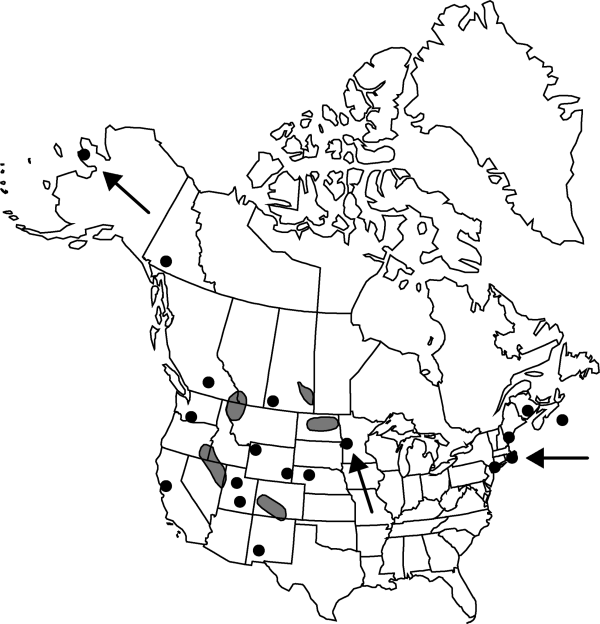Difference between revisions of "Chenopodium rubrum var. humile"
in W. H. Brewer et al., Bot. California 2: 48. 1880.
Endemic
Basionym: Chenopodium humile Hooker Fl. Bor.-Amer. 2: 127. 1838
Synonyms: Chenopodium rubrum subsp. humile (Hooker) Aellen
imported>Volume Importer |
imported>Volume Importer |
||
| Line 1: | Line 1: | ||
{{Treatment/ID | {{Treatment/ID | ||
|accepted_name=Chenopodium rubrum var. humile | |accepted_name=Chenopodium rubrum var. humile | ||
| − | |accepted_authority=(Hooker) S. Watson | + | |accepted_authority=(Hooker) S. Watson |
|publications={{Treatment/Publication | |publications={{Treatment/Publication | ||
|title=in W. H. Brewer et al., Bot. California | |title=in W. H. Brewer et al., Bot. California | ||
| Line 46: | Line 46: | ||
-->{{#Taxon: | -->{{#Taxon: | ||
name=Chenopodium rubrum var. humile | name=Chenopodium rubrum var. humile | ||
| − | |authority=(Hooker) S. Watson | + | |authority=(Hooker) S. Watson |
|rank=variety | |rank=variety | ||
|parent rank=species | |parent rank=species | ||
| Line 60: | Line 60: | ||
|publication year=1880 | |publication year=1880 | ||
|special status=Endemic | |special status=Endemic | ||
| − | |source xml=https:// | + | |source xml=https://bitbucket.org/aafc-mbb/fna-data-curation/src/2e0870ddd59836b60bcf96646a41e87ea5a5943a/coarse_grained_fna_xml/V4/V4_521.xml |
|genus=Chenopodium | |genus=Chenopodium | ||
|subgenus=Chenopodium subg. Blitum | |subgenus=Chenopodium subg. Blitum | ||
Latest revision as of 21:59, 5 November 2020
Stems decumbent or spreading, 0.1–1.8 dm. Leaf blades: margins entire or shallowly dentate. Vertical seeds 0.8–1(–1.2) mm diam.
Phenology: Fruiting fall.
Habitat: Alkali flats, brackish beaches, bare bottomlands, lake shores, dried-up pools, somewhat akaline clay flats
Elevation: 10-1500 m
Distribution

Alta., B.C., N.B., N.S., Sask., Yukon, Alaska, Calif., Colo., Idaho, Maine, Mass., Minn., Mont., Nebr., Nev., N.Mex., N.Y., N.Dak., Oreg., Utah, Wash., Wyo.
Discussion
Chenopodium rubrum var. humile has been treated as a species, variety, or form, or not recognized at all. It is native in western North America and introduced east of the plains. Sometimes it has been misidentified as C. chenopodioides. Patterns of distribution of these taxa in North America are in need of further study.
Selected References
None.
Lower Taxa
None.